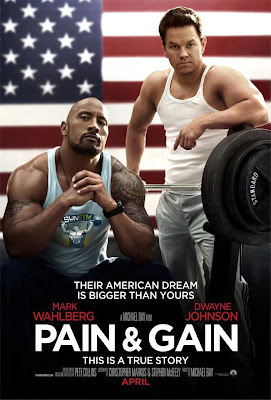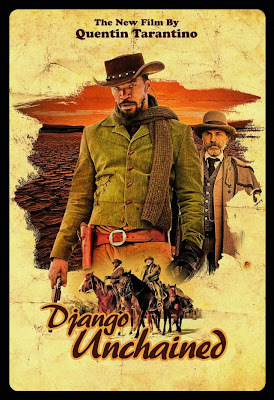Get On Up Is Out Of Sight (Movie Review)
James
Brown: If it sounds good and it feels
good, then it’s musical.
There is a level of
familiarity to musician biopics at this point that tends to keep me from
becoming too excited about the prospect of a new one. With varying degrees of separation, they
mostly tend to follow a formula, much like any film that hits similar beats as
its predecessors within the same sub-genres (just look at the Guardians of the Galaxy, which opens on
the same day, as it is supremely entertaining, but still following a proven
formula). Keeping that in mind, I am
also a big fan of James Brown and was happy to go in to this film pretty open-minded
(as I generally do). If there is one way
to express how much I ended up enjoying Get
On Up, it would have to be by stating that no musician biopic has ever made
me want to dance as much as Get On Up
did. While the film only occasionally
falls into some familiar trappings, Chadwick Boseman’s lead performance is
terrific in a film that tries to be fair to its main subject, and add plenty of
soul to the genre.
This is a film that
follows James Brown’s life from his troubled childhood, into his singing career,
up to his peak, with time spent after the height of his fame as well. There are two decisions made to make this
film stand out a bit more, even though these narrative devices are not
uncommon. The first is creating a fractured
narrative structure. We jump around time
throughout this movie. There is a rhythm
to why the film moves this way, but we often see segments from early and late
in the life of James Brown running into each other. Having James Brown speak directly into camera
is another cinematic touch this film employs.
Jersey Boys recently featured
this as well, but while that may work well in the stage musical, the theatrical
attempt felt too scattered to really register.
In Get On Up, Brown’s aside’s
to the camera manage to both inspire humor and let us in on certain shames he
may have in his own behavior.
I may have just
described simple narrative tricks to make the film seem a bit more interesting
in a film world full of bland biopics, but there are several aspects that make
this film stand as strong as it is, with the key one being Chadwick Boseman’s
performance. James Brown was a larger
than life personality and while it may as well be impossible for Boseman or
anyone to truly capture the presence of James Brown, he certainly achieves the
right percentage of what it would take to make it effective on film. Regardless of whether or not Boseman actually
sang, his energy in recreating live performances, dancing and shuffling all
over the stage, and being a general ambassador of the funk that James Brown was
the godfather of, all register in the exact way one would hope. What adds to how accomplished this
performance is, is the way Bosman plays the role when not on stage. Here we are able to see a version of what
this man is and even if the film does not delve too far into his drug use and
legal issues, there is still plenty of time spent unpacking this man’s
childhood and at least letting us understand how James Brown was fashioned into
a person that was both a legend and very human in some of the worst ways.
Coming off of the
Jackie Robinson biopic, 42, Boseman
has gone from an understated role to a much livelier performance, yet we are
never kept from knowing the dynamic human that lies beneath all that
swagger. At the same time there are
several strong supporting performances in this film as well. Chief among them is Nelsan Ellis as Bobby
Byrd, James Brown’s best friend and constant support during his
performances. As Ellis is one of the
last good things to be associated with HBO’s True Blood, it is of little surprise that he is so strong in this
film, given the tricky relationship Bryd had with Brown. Additionally, Dan Aykroyd provides nice work
as Ben Bart, the one studio man Brown could call his friend. Then you have obvious greats Viola Davis,
Lennie James, and Octavia Spencer all popping into key roles and providing
strong work in their small moments. Even
comedian Craig Robinson manages to step it up into dramatic mode, acting as a
constant thorn for James Brown, as one of his band members.
With a script developed
by Jez and John-Henry Butterworth, director Tate Taylor has managed to put
together a strong version of the biopic that does not attempt to do more than
showing its topic as who he was, while injecting a level of flair that gets
across the sense of style that James Brown was a part of, even if we only get
so much period detail, depending on the year the film is portraying. As these films tend to be much more modestly
budgeted, I can say I was impressed by how colorful and lively the whole film
felt, even when hitting some of the darker periods in Brown’s life. If of course helps that Taylor manages to
hold up the pace of this 2+ hour film.
His last film, The Help, which
I found to be well-meaning and acted, but hampered by its simplistic take on ‘racism
is bad’, also lasted for more than 2 hours and felt it. Get On
Up is a more entertaining to film to watch, which may or may not be
obvious, and it certainly feels like a good use of that amount of time.
It should go without
saying that the soundtrack for this film is pretty great, but the film manages
to utilize all of the songs to great effect, whether they are just strong
diversions or a solid representation of what James Brown is going through, when
performing. Adding this to all the other
filmmaking elements and Get On Up
does everything it can to be one of the hardest working biopics in recent
years. At a time when Walk Hard: The Dewey Cox Story managed
to both hilariously send up many musical biopics to great effect and in essence
ruin the genre, in my eyes, for many that have come since, Get On Up has provided me with a strong counter to the stuffy
versions of these films that I have seen over time, regardless of how strong
the lead performances may have been. Get On Up has all the heart, funk, and
soul that you want, so if you at least have the feeling you may want to check
this film out, go for it and you might just ending up feeling very good (so
good) afterward.
James
Brown: Are we done Mr. Byrd?
Bobby Bryd: I’m afraid not Mr. Brown.
James Brown: I said are we done?
Bobby Byrd: I think we’ve got more funk in the trunk.
Bobby Bryd: I’m afraid not Mr. Brown.
James Brown: I said are we done?
Bobby Byrd: I think we’ve got more funk in the trunk.
Aaron
is a writer/reviewer for WhySoBlu.com.
Follow him on Twitter @AaronsPS4.
He also co-hosts a podcast, Out Now with Aaron and Abe, available via iTunes or at HHWLOD.com.
He also co-hosts a podcast, Out Now with Aaron and Abe, available via iTunes or at HHWLOD.com.











Comments
Post a Comment